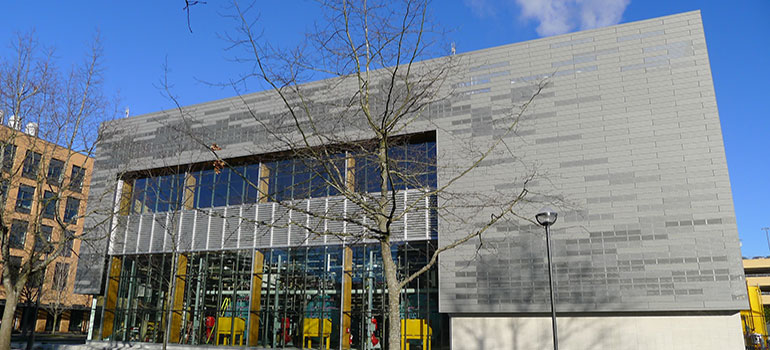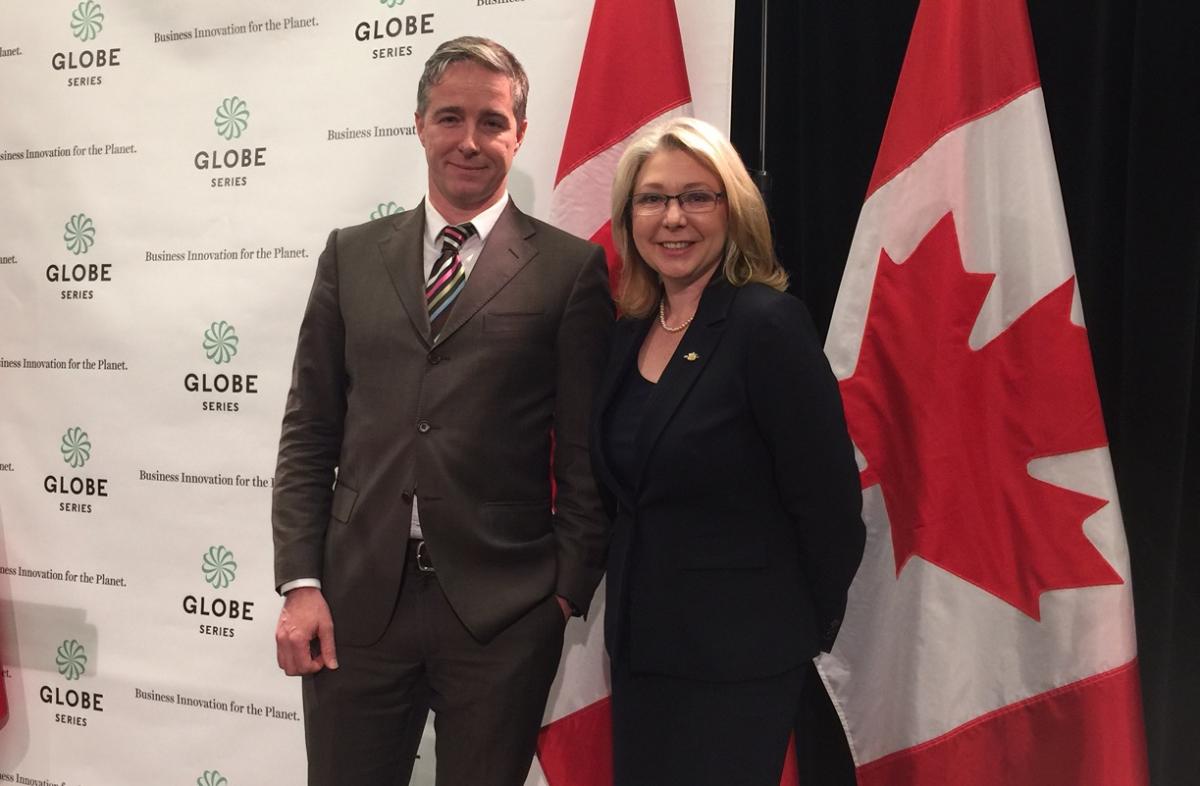
Republished from UBC Public Affairs - The University of British Columbia’s Vancouver campus reduced its greenhouse gas (GHG) emissions by 30 per cent in 2015 compared with 2007 levels, the university announced today at the GLOBE 2016 conference.
“These reductions in absolute emissions are even more significant given our student population increased by 20 per cent and our campus footprint by 16 per cent over the same time period,” said James Tansey, executive director of UBC’s sustainability initiative. “UBC’s 20-year sustainability strategy, the Climate Action Plan, will continue our commitment to environmental stewardship, including further reducing greenhouse gas emissions 67 per cent by 2020 and 100 per cent by 2050 from 2007 levels.”

The Campus Energy Centre burns natural gas to produce thermal energy for the UBC Vancouver campus.
UBC has been a global leader in sustainability for two decades, including opening Canada’s first sustainability office in 1997 and meeting its Kyoto target for emissions reductions in 2007.
UBC’s comprehensive sustainability strategy includes innovative clean energy projects to reduce the campus’s carbon footprint, such as replacing the Vancouver campus’s aging steam heating infrastructure with a more efficient hot water heating system. This $88-million project, which received $6.95 million in funding from the provincial government, is expected to reduce overall Vancouver campus GHG emissions by 22 per cent once complete in 2017.
In addition, UBC received $1.25 million in provincial funding over the last two years under the Carbon Neutral Capital Program.
“Congratulations to the University of British Columbia for successfully achieving a 30 per cent reduction in GHG levels since 2007, while still maintaining a state-of-the-art learning environment,” said Environment Minister Mary Polak. “B.C. remains the only carbon neutral province, territory or state on the continent thanks to the innovative work done by our public sector organizations like UBC – proving that counting the cost of carbon pollution is good for both the environment and the bottom line.”
 Dr. James Tansey, Executive Director, UBC Sustainability Initiative and Mary Polak, Minister of Environment for the Province of British Columbia, at GLOBE 2016.
Dr. James Tansey, Executive Director, UBC Sustainability Initiative and Mary Polak, Minister of Environment for the Province of British Columbia, at GLOBE 2016.
Established in 2012, the provincial government’s Carbon Neutral Capital Program has allocated $50 million to be used over five years to help schools, hospitals, colleges and universities with projects and initiatives to cut carbon emissions and energy costs. Carbon neutrality is one of many strategies for encouraging emissions reductions and taking leadership on climate action.
UBC also conducts world-changing sustainability research and education, with more than 40 sustainability-related academic programs on campus and more than 600 sustainability-oriented courses, 33 of which are directly related to climate change.
For information about UBC’s sustainability strategy, click here.
For UBC's annual sustainability report, click here.
For information about the provincial government’s Carbon Neutral Capital Program, click here.
Media Contact
Leslie Dickson, UBC Public Affairs
Tel: 604.822.1266
Cell: 604.828.0787
leslie.dickson@ubc.ca